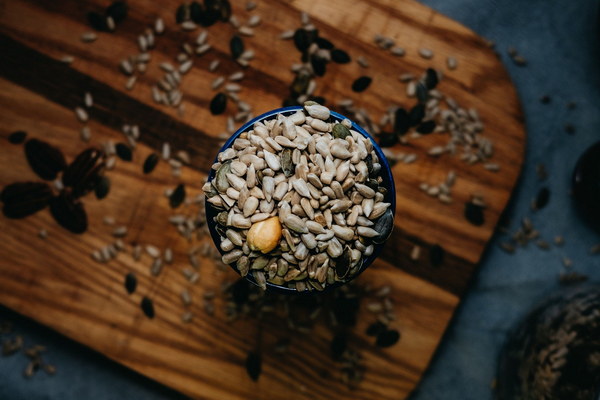The Edible Silkworm Eggs A Nutritious and Ancient Remedy Unveiled
In the realm of traditional Chinese medicine and holistic wellness, the use of edible silkworm eggs, known as Buzhongyao or Soybean Egg, has long been a cherished secret. These tiny, protein-packed morsels have been consumed for their health benefits and are believed to offer a myriad of therapeutic properties. Let's delve into the fascinating world of edible silkworm eggs and explore their nutritional value, health benefits, and historical significance.
Silkworm eggs, as the name suggests, come from the larvae of the silk-producing moth, Bombyx mori. These eggs are typically golden in color and are harvested before the silkworms hatch. The process of extracting and preparing edible silkworm eggs is meticulous, ensuring that the nutritional value is preserved. The eggs are then commonly consumed in various forms, including as a powder, in soups, or as an ingredient in traditional Chinese dishes.
Nutritional Value of Edible Silkworm Eggs:
Edible silkworm eggs are an excellent source of protein, containing all nine essential amino acids. They also boast a high concentration of nutrients, including vitamins B1, B2, B3, B5, B6, B9, and B12, as well as minerals such as iron, zinc, selenium, and copper. This rich composition makes them a superfood in the eyes of many health enthusiasts and nutritionists.
Health Benefits of Edible Silkworm Eggs:
1. Immune System Boost: The high levels of vitamin B12 in edible silkworm eggs contribute to the production of red blood cells, which helps to enhance the immune system. Additionally, the eggs' protein content supports the body's natural defense mechanisms against infections.
2. Digestive Health: The probiotics found in edible silkworm eggs can aid in the digestion process, promoting a healthy gut flora. This, in turn, can lead to improved digestion and a reduction in symptoms of irritable bowel syndrome (IBS).
3. Energy and Metabolism: The amino acids and vitamins present in these eggs support the body's metabolism and energy levels. Consuming them can help in maintaining a healthy weight and improving overall vitality.
4. Brain Health: The B vitamins in edible silkworm eggs play a crucial role in maintaining brain function and reducing the risk of cognitive decline. These nutrients are essential for the production of neurotransmitters and the regulation of brain activity.

5. Skin Health: The high protein content of these eggs helps to support collagen production, which is vital for maintaining healthy, youthful-looking skin. Additionally, the antioxidants found in the eggs can protect the skin from damage caused by free radicals.
Historical Significance of Edible Silkworm Eggs:
Edible silkworm eggs have been a staple in traditional Chinese medicine for centuries. The earliest records of their use date back to the Ming Dynasty (1368-1644 AD). The ancient Chinese believed that these eggs possessed magical healing properties and were used to treat a wide range of ailments, including fatigue, anemia, and skin conditions.
In the 21st century, the use of edible silkworm eggs has gained momentum, not only in China but around the world. People are increasingly interested in exploring alternative and natural remedies, and the nutritional benefits of these eggs have not gone unnoticed.
Conclusion:
Edible silkworm eggs are a nutritional powerhouse, offering a wide range of health benefits. From supporting the immune system to promoting digestive health and skin beauty, these tiny eggs have much to offer. As more people become aware of the health advantages of these ancient remedies, it's likely that edible silkworm eggs will continue to gain popularity in the world of holistic wellness and traditional Chinese medicine.









